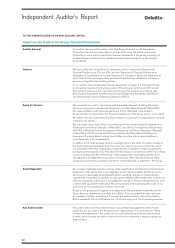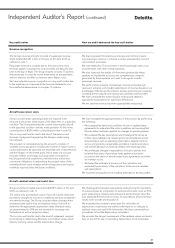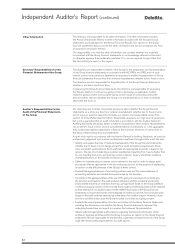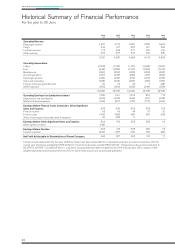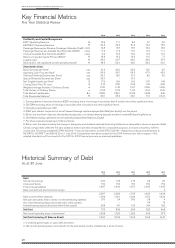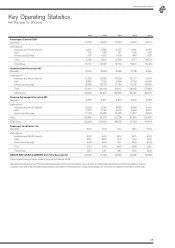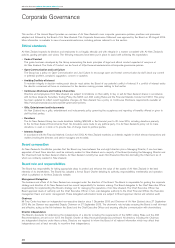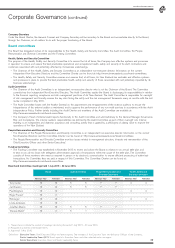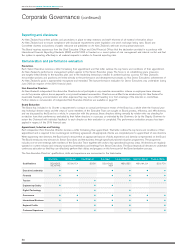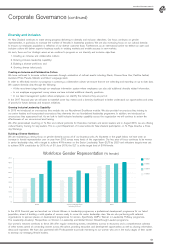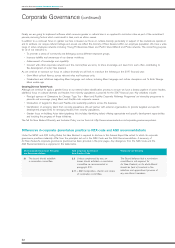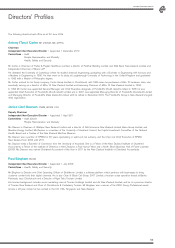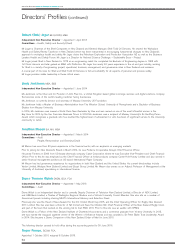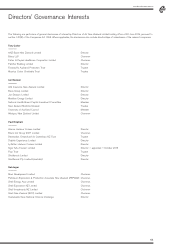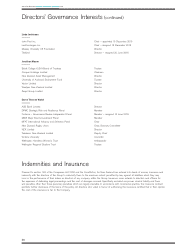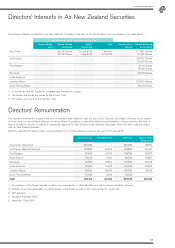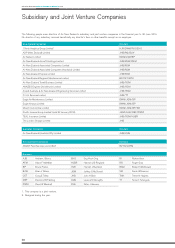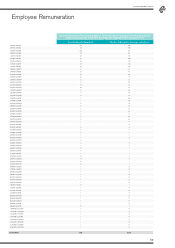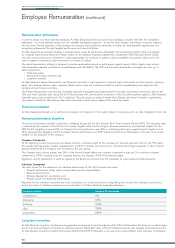Air New Zealand 2016 Annual Report Download - page 52
Download and view the complete annual report
Please find page 52 of the 2016 Air New Zealand annual report below. You can navigate through the pages in the report by either clicking on the pages listed below, or by using the keyword search tool below to find specific information within the annual report.
50
AIR NEW ZEAL AND ANNUAL FINANCIAL RESULTS 2016
Reporting and disclosure
Air New Zealand has written policies and procedures in place to keep investors and staff informed of all material information about
Air New Zealand and to ensure compliance with disclosure requirements under legislation and stock exchange listing rules. Board and
Committee charters and policies of public relevance are published on Air New Zealand’s web site at www.airnzinvestor.com.
The Board receives assurances from the Chief Executive Officer and Chief Financial Officer that the declaration provided in accordance with
International Financial Reporting Standards (IFRS) and NZ IFRS is founded on a sound system of risk management and internal control and that
the system is operating effectively in all material respects in relation to financial reporting risks.
Remuneration and performance evaluation
Executives
Each Senior Executive receives a letter formalising their appointment and that letter outlines the key terms and conditions of their appointment.
Air New Zealand’s performance management system applies to the Senior Executive group. The focus is on establishing goals, measures
and targets linked directly to the business plan and to the leadership behaviours needed to achieve business success. Air New Zealand’s
remuneration policies and practices are linked directly to the performance and development processes so that Senior Executives’ achievement of
Air New Zealand’s goals is appropriately recognised and rewarded. The last performance evaluation for Senior Executives was undertaken during
June 2016 (in respect of the 2016 financial year).
Non-Executive Directors
Air New Zealand’s independent Non-Executive Directors do not participate in any executive remuneration scheme or employee share schemes;
nor do they receive options, bonus payments or any incentive-based remuneration. Directors are entitled to be reimbursed by Air New Zealand for
reasonable travelling, accommodation and other expenses they may incur whilst travelling to or from meetings of the directors or committees.
Further details on remuneration of independent Non-Executive Directors are available on page 57.
Board Evaluation
The Board has included in its Charter a requirement to conduct an annual performance review of the Board as a whole after the financial year
end. Individual director views and the views of some members of the Executive Team are sought on Board process, efficiency, and effectiveness,
and are discussed by the Board as a whole. In conjunction with this process, those directors retiring annually by rotation who are standing for
re-election have their performance evaluated by their fellow directors in a process co-ordinated by the Chairman, (or by the Deputy Chairman to
review the Chairman) with individual feedback to each director as their evaluation is completed. This performance evaluation process has been
applied in respect of the 2016 financial year.
Appointment, Induction and Training
Each independent Non-Executive Director receives a letter formalising their appointment. That letter outlines the key terms and conditions of their
appointment and is required to be countersigned confirming agreement. All appropriate checks are completed prior to appointment of new directors.
When appointing new directors, the Board aims to ensure that an appropriate balance of skills, experience and diversity is represented on the Board.
The Board introduces new directors to Senior Executives and the business through specifically tailored induction programmes. The programme
includes one-on-one meetings with members of the Executive Team together with visits to key operational business areas. All directors are regularly
updated on current industry and company issues by presentations and briefings from Senior Executives. The Board expects all directors to undertake
continuous education so that they can effectively perform their duties and progress on this forms part of the Board evaluation process.
The Non-Executive Directors’ qualifications, skills and experience are summarised in the table below.
Tony Carter Jan Dawson Paul Bingham Rob Jager Linda Jenkinson Jonathan Mason Therese Walsh
Qualifications BE (HONS),
ME, M.PHIL BCOM, FCA BCOM BE (HONS),
MBA MBA, BBS MBA, MA, BA BCA, FCA
Executive Leadership
Financial
Tourism
Engineering/Safety
Digital/Technology
Governance
International Business
Regional Profile
Customer Experience
Corporate Governance (continued)


